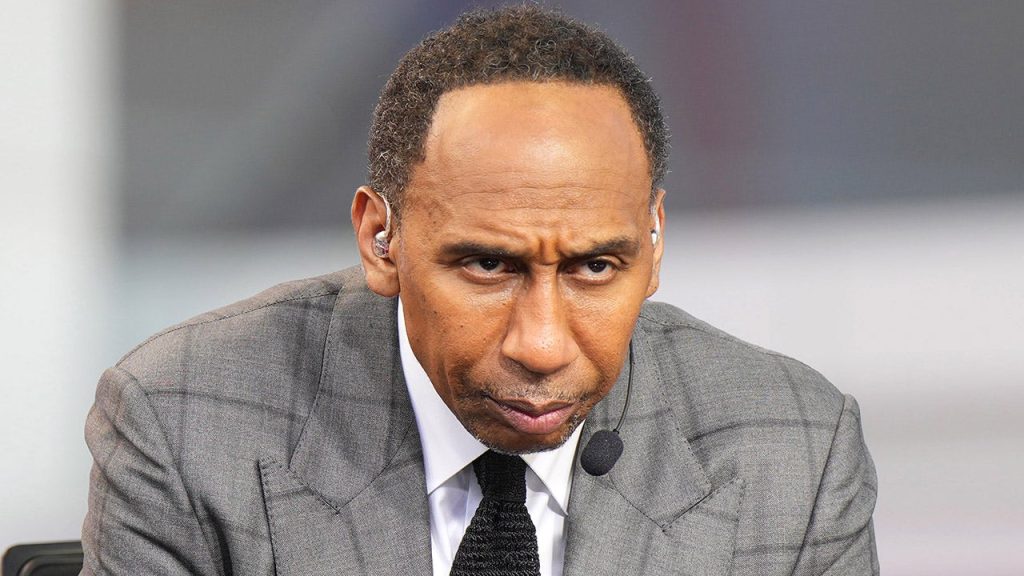ESPN commentator Stephen A. Smith has expressed dissatisfaction with the current state of the Democratic Party and has hinted at a possible presidential run in 2028. In recent statements made during appearances on various media platforms, he criticized the party’s direction and emphasized the need for significant changes. The sportscaster has indicated that he has been approached by political figures and influential individuals regarding the prospect of an exploratory committee for his potential campaign.
| Article Subheadings |
|---|
| 1) Smith’s Critique of the Democratic Party |
| 2) Potential Presidential Aspirations |
| 3) Voices from the Political Landscape |
| 4) The Current Political Climate |
| 5) Future Implications and Public Opinion |
Smith’s Critique of the Democratic Party
During various appearances, Stephen A. Smith did not hold back his criticism of the Democratic Party, stating that it is “absolutely positively blowing it.” He described the party’s alignment with high spending, open borders, and identity politics as detrimental to the nation. According to Smith, these policies have “ravaged” American society and have left everyday citizens feeling uneasy and disconnected from their political leaders. He elaborated that there have been alarming instances, where individuals expressed fear of losing their jobs over trivial matters, such as misusing pronouns. This sentiment, he argued, reflects a broader issue within the party regarding how it connects with the average American.
Potential Presidential Aspirations
In recent interviews, Stephen A. Smith has kept open the possibility of running for president in 2028. He explained that while he does not possess political experience and has never aspired to be a politician, influential figures have approached him about launching an exploratory committee. Within his conversations with various pundits and prominent individuals, he was encouraged to seriously consider a run. He stated that his pastor advised him to remain open to the possibility, given the support he has received from his community. This encouragement has led Smith to at least entertain the thought of a potential candidacy as a means to bring about change.
Voices from the Political Landscape
Smith’s discussions about a potential run are not occurring in a vacuum. He has shared that numerous elected officials and financial backers, including billionaires, have expressed interest in his campaign. These conversations highlight a growing concern among certain sectors of society about the current state of political affairs. Smith’s remarks reflect a broader dissatisfaction with both major parties. He criticized politicians who focus primarily on opposing each other rather than addressing the pressing issues facing American citizens, noting that the average American is concerned about practical matters like the cost of living rather than partisan conflicts.
The Current Political Climate
In his assessments of the political landscape, Stephen A. Smith argues that both major political parties are failing to capture the sentiments and needs of the electorate. He emphasized that citizens are primarily interested in living in peace and addressing everyday concerns such as mortgage payments and rising grocery prices. According to Smith, the current discourse within Congress often neglects these crucial “kitchen table” issues, leading to a significant disconnect with the electorate. He asserted that the political climate is becoming increasingly polarized and contentious, with officials more focused on partisan squabbles than on genuinely serving their constituents.
Future Implications and Public Opinion
As the possibility of Stephen A. Smith‘s presidential run looms, there are several implications for the political landscape. His candidacy could resonate with a segment of voters who feel disenchanted with the current political options. By positioning himself as an outsider, Smith may attract support from individuals yearning for change within the two-party system. Additionally, as he navigates this potential path, public opinion will likely play a pivotal role in his decision-making process. If he decides to pursue a campaign, the focus will be on whether he can effectively translate his celebrity status into genuine political engagement.
| No. | Key Points |
|---|---|
| 1 | Stephen A. Smith criticized the Democratic Party’s current direction, emphasizing the need for significant reforms. |
| 2 | Smith is considering a presidential run in 2028 and has received encouragement from political figures and supporters. |
| 3 | Multiple sources, including billionaires, have approached Smith about his potential political candidacy. |
| 4 | Smith argues that both major parties have become disconnected from the average American’s concerns. |
| 5 | Public opinion will play a crucial role in determining whether Smith decides to pursue a campaign for president. |
Summary
In conclusion, the ongoing discussions surrounding Stephen A. Smith and his potential presidential run in 2028 underscore the growing concerns about political representation in America. His critiques of the Democratic Party and the broader political culture resonate with a significant portion of the electorate that feels overlooked. Whether or not he pursues a candidacy, Smith’s insights reflect a crucial dialogue about the future direction of American politics.
Frequently Asked Questions
Question: What changes does Stephen A. Smith want to see in the Democratic Party?
Smith advocates for a transformation of the Democratic Party as it stands, arguing that its current structure is not adequately serving American interests, especially in terms of handling everyday struggles.
Question: Why is Smith considering a presidential run?
Smith is considering a presidential run due to encouragement from various political figures and his own community, as he believes there is a significant disconnect between politicians and their constituents.
Question: What issues does Smith believe are most important to American voters?
Smith believes that issues such as rising costs of living, including gas and groceries, are the most pressing concerns for American voters, rather than the partisan conflicts typically seen in political discourse.


